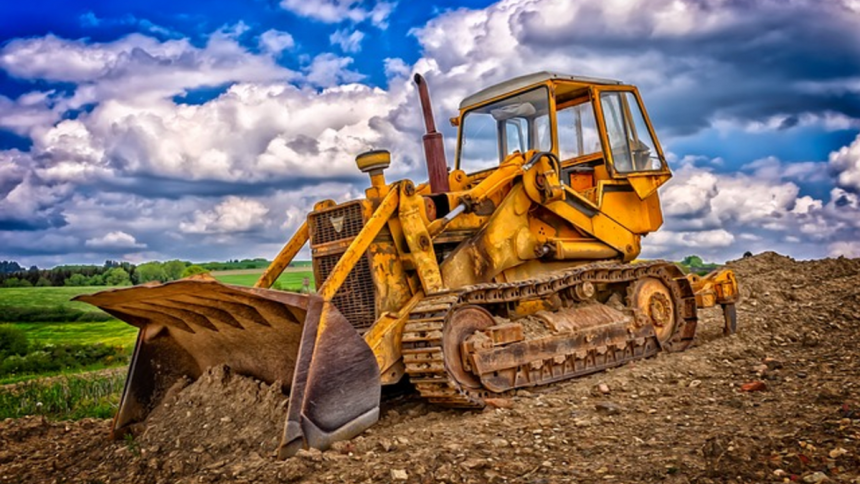Have you recently purchased land intending to build your dream home from scratch? If so, then you are undoubtedly aware that you will need a wide range of building permits before you can break ground.
One of the most significant assessments that needs to be made is the soil testing Melbourne authorities require before each new build. Soil testing involves assessing the ground on which the buildings will be. We explore the different pointers you should know about these soil tests.
Understanding Your Soil
Here’s a breakdown of the pointers you should know about having a soil test done for your proposed build.
1. Knowing What a Soil Test Is
Essentially, a soil test determines the soil’s bearing capacity. The test will determine whether or not the soil will be able to hold the weight of your home and any additional structures such as sheds, garages, and flatlets.
This test is sometimes referred to as soil reactivity ensures that the location of the proposed build is safe and stable to prevent potential structural issues down the line. Chemical and biological characteristics such as pH, soil type, nutrient levels, and drainage are some of the key aspects that get tested.
2. Required for House Construction
Many people are under the misconception that soil tests are only needed for extensive construction projects. According to Australian regulations, all new builds must have the necessary soil test done. This is to identify any potential issues that may exist in the soil. Some soil issues can also hamper construction, especially if the soil is unstable.
3. Soil Tests are Easier than You Think
There are many different ways of doing soil tests. The most common method involves using a hand auger to take different samples from a range of different depths. The samples are then analysed and physical properties checked.
4. Specialised Professionals do the Soil Tests
Since the average lay person knows very little about soil testing, this procedure is best left to the experts. Professional geotechnical engineers are the experts you’ll need to consult for this type of test. They have the necessary skills and equipment to do the tests correctly.
This will be essential in assessing whether or not your home will be built on a solid foundation. These experts will also be able to advise you of any other tests or assessments that you’ll need to get for your build to be compliant with state requirements.
5. Problematic Soil Doesn’t Mean the End
If getting a building permit is dependent on the soil meeting specific criteria, then it means that if it doesn’t, you won’t get the permit. Right? Not necessarily. If your soil tests reveal that there could be a potential issue, there are remedial measures that can be put in place to make your soil more stable.
The results of the soil test will help your engineer, architect, and construction team develop the right building techniques to counter the issue. For instance, if the soil shows a high level of sulphur, this could seep into your home. To counter this, your engineer will recommend using a cement type that’s resistant to sulphur.
6. Understanding the Costs of a Soil Test
The cost of an average soil test varies depending on the region where you live. In the Melbourne area, the average cost of a soil test can range between $500 and $800 (plus GST). This is for a single-family dwelling and includes drilling two to three boreholes to a depth of approximately 1.5 to 1.8 meters.
If your test requires additional information outside the scope of the standardised test, a more comprehensive test will need to be completed. This will come at an additional cost, and a quote can be provided based on your property’s specific requirements.
7. Benefits of a Soil Test
There are several benefits of having a soil test done for your new build. The most significant of these include the following:
- Helps determine foundation integrity by testing the load capacity to determine if the soil can hold all your structures.
- Identifies potential soil issues such as soil liquefaction and expansive clay, which allows engineers to design foundations that can counter these issues.
- Knowing what soil your construction team is dealing with allows for more efficient foundation design. This can save considerable costs and avoid remedial measures down the line.
- Soil testing is a regulatory compliance factor and will ensure you get your building permit. This ensures that your build meets environmental regulations.
- Hazards such as slope instability or areas prone to flooding can be identified, and safety measures can be implemented to counter this.
- Eliminate potential delays as issues can be identified because issues are identified early.
Final Thoughts
If you’re getting ready to plan your first build, it’s essential to consult with a geotechnical service for a quality soil test. This will ensure that the test is done correctly and according to the local legislation. You will also have peace of mind that your home will be built on a safe and stable foundation.
Lynn Martelli is an editor at Readability. She received her MFA in Creative Writing from Antioch University and has worked as an editor for over 10 years. Lynn has edited a wide variety of books, including fiction, non-fiction, memoirs, and more. In her free time, Lynn enjoys reading, writing, and spending time with her family and friends.















